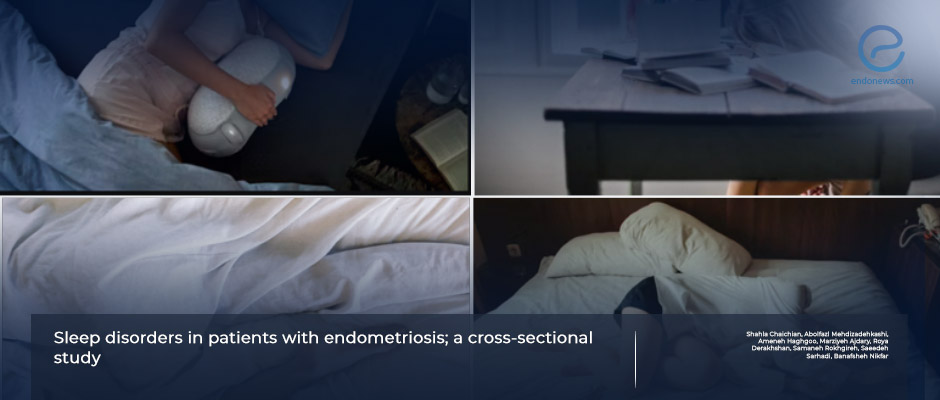An often overlooked symptom: Sleep disorders in patients with endometriosis
Jul 19, 2024
Sleep disturbances adversely affect the quality of life in women with endometriois.
Key Points
Importance:
- Sleep disturbance is the most disturbing endometriosis complaint that affects the quality of life.
- Adverse effects of insomnia on the woman's health include sympathetic activity, metabolic effects, pro-inflammatory responses, and hypothalamic-pituitary-adrenal axis.
Highlights:
- The study's results suggested the importance of paying attention to sleeping disturbances and adding some therapy strategies for women with endometriosis.
What's done here:
- This analytic-cross-sectional study investigates sleep disorders of women with endometriosis compared to controls and the factors associated with poor sleep quality.
- The study population was women with a clinical diagnosis of endometriosis who were referred to the three hospitals in Tehran, Iran, between 2019 and 2021 and their control group.
- Visual Analog Scale (VAS) and Pittsburg Sleep Quality Index (PSQI) were used to measure sleep disorders, and all comparative statistical analyses were performed to find the answer.
Key Results:
- The study included 665 participants, whose 463 were diagnosed with endometriosis and 202 healthy women.
- The mean global PSQI score in the endometriosis group was significantly high and indicated poor sleep quality.
- The highest mean score was related to sleep disturbances. Conversely, the lowest score was related to sleep duration.
- Sleep latency, habitual sleep efficiency, and sleep day-time dysfunction scores are all statistically higher in the endometriosis group.
- No difference was detected in the use of sleep medications.
- Patients who had dysuria, dyspareunia, pelvic pain, and dyschezia had significantly higher PSQI scores.
Strengths and Limitations:
- The study's strengths were the statistical analyses, the number of the population, and the control group.
- The study's limitations are that the diagnosis of endometriosis was made only by the clinical signs, symptoms, and ultrasonographic findings, for which there was no pathologic confirmation.
Lay Summary
Recent reports suggested that women with endometriosis have more frequent complaints of poor sleep, reduced quality of life, and higher pain scores when compared with healthy women.
Patients experience fatigue and increased pain the day after insomnia. For this reason, knowledge about the severity and frequency of sleep disorders in women with endometriosis is important for gynecologists in clinical practice.
Chaichian et al., from the Endometriosis Research Center, Iran University of Medical Sciences, Tehran, Iran, set up an analytic-cross sectional study to investigate the frequency and severity of sleep disorders in women with endometriosis. The mean age of the study group was 35,4+7,9 years.
The PSQI tests revealed that six out of seven categories had very high sleeping disturbance scores in the case group and were statistically significant compared to the control group. According to statistical analyses, sleep quality in endometriotic women is poor. Even pain, which is considered the most important symptom of endometriosis, can be exacerbated by sleep disturbance because patients with dyspareunia, dysuria, dyskinesia, and pelvic pain had a significantly higher PSQI score. On the contrary, the persistence of pelvic pain may also be a reason that increases sleep disorders in women with endometriosis. This vicious cycle needs to be corrected to improve the quality of life.
The authors concluded: "Based on this result, gynecologists should take measures to improve sleep quality in endometriosis patients. "This research was recently published in BMC Women's Health.
Research Source: https://pubmed.ncbi.nlm.nih.gov/38877485/
sleep disorders pain Pittsburg Sleep Quality Index (PSQI) Visual Analog Scale (VAS) central sensitization inventory (CSI) endometriosis.

